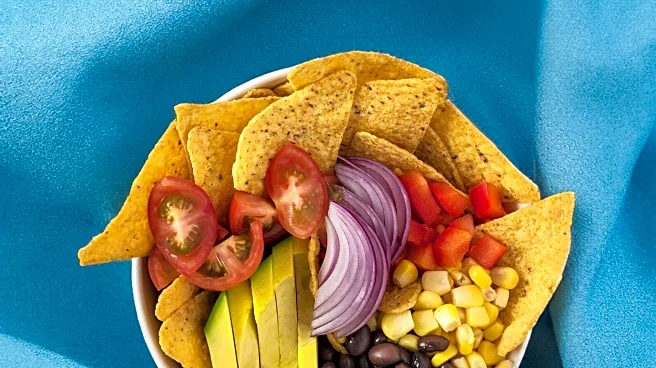What's Happening?
In Los Angeles, the seasonal bloom of the flor de izote, or yucca flower, is bringing a taste of home to Salvadoran chef Karla Vasquez. The flower, which is the national flower of El Salvador, is currently in season and can be found in abundance at local Salvadoran markets. Chef Vasquez, known for her work in preserving Salvadoran culinary traditions, has been sourcing these flowers to prepare traditional dishes from her cookbook, 'The Salvisoul Cookbook.' The flor de izote is not only a culinary ingredient but also a cultural symbol for many Salvadorans living in the U.S., offering a connection to their homeland.
Why It's Important?
The presence of flor de izote in Los Angeles highlights the city's rich cultural diversity and the ways in which immigrant communities maintain their cultural heritage. For Salvadorans in the U.S., the flower represents more than just a culinary ingredient; it is a symbol of cultural identity and resilience. The ability to access and cook with traditional ingredients like flor de izote allows Salvadoran Americans to preserve their culinary traditions and pass them on to future generations. This cultural preservation is crucial in maintaining the diversity and richness of American society, particularly in multicultural cities like Los Angeles.
What's Next?
As the flor de izote continues to bloom, it is expected that more Salvadoran families will partake in the tradition of cooking with this flower, further strengthening cultural ties within the community. Chef Vasquez plans to continue her work in promoting Salvadoran cuisine and may explore new ways to incorporate traditional ingredients into modern dishes. The ongoing availability of flor de izote in local markets will likely encourage more people to explore Salvadoran culinary traditions, potentially leading to a broader appreciation and understanding of Salvadoran culture in the U.S.
Beyond the Headlines
The story of the flor de izote in Los Angeles also touches on broader themes of immigration and cultural adaptation. For many immigrants, food is a powerful link to their past and a way to navigate their identity in a new country. The ability to find and use traditional ingredients in a foreign land can provide comfort and a sense of belonging. This phenomenon is not unique to Salvadorans but is a common experience among many immigrant communities in the U.S., highlighting the importance of cultural preservation in a globalized world.









